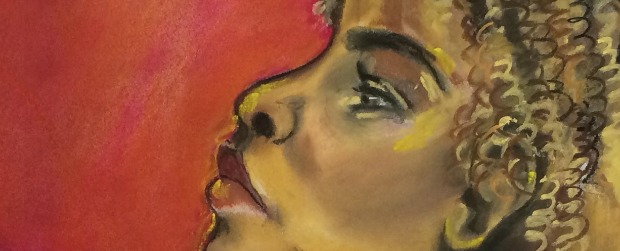You have no items in your cart. Want to get some nice things?
Go shopping
After a very long wait, I adopted the children. They were pink. I did not know if I loved them. At moments when I was my better self, I believed that I did, and sometimes this was because of a favourable interaction between the girls and I, or one girl and I, or because I loved to please their natal mother, but in many, many more moments, I believed that I did not love them, that I only tolerated them, and even then not well; they niggled between the intimacies their natal mother and I shared; I saw and felt that her loyalties remained divided when I wanted her to myself. I would do a great deal of ferrying, and when I picked one of the children up, say from a birthday party, I would be asked if I was the nanny, and I would say that I was not, that I was the mother, and I would be asked where the real mother was, and I would reply that I was the real mother. After these situations, I would be intolerably cross, short both in the car with my daughter and then back at home for two or three days, with everyone.
Despite having pink children, and despite the fact that I was our family’s high-income earner, I was still not pink myself. Although it sounds almost ridiculous to put it down on the page, I saw myself as pink, and when I was reminded that I was not, and that I was of a race of people intended to be subordinate, I would resent my pink family and take my ire out on them. During these times, I was certain I did not love the children, and never had, and that I had been more or less hoodwinked into becoming part of the family by my uncertain sexual orientation—this calumnious thing that had betrayed me when all I wanted to do was to fit in. I did not love the children’s mother, it was now and had always been plain to see, and I wanted to smash things, and I did smash things.
But we are not ingrates! my wife would cry, holding up her arms, they are your children and I am your wife! We are your family! Hearing this, whirled clouds rose up my arms and cinched my heart. I aimed my blows towards the red couch.
I misrepresented their past situation, their prior lives, so that everyone said that I was very kind to have taken them on.
You didn’t take us on! said my wife.
This is where our fundamental disagreement arose.
After the blow-outs, my wife would come to me, trembling, and hold me, and usually I, weakened, would hold her, too, but each time this happened, I loved her with increasing contempt. She was overweight, ill, and had irritating habits; she would not vacuum; she could not cook; she often wanted me to stay home with her when I wanted to be out.
The pink children required money, a lot of money, for school trips and clothing and shoes and school supplies and later collage.
Sometimes I thought about the pink children and imagined what it would be like to love them, to have given birth to them, and after imagining this uncomplicated bond for a few hours, I loved them. But then one of them would use all the hot water when I needed a shower, and I would again not love them. I wished they were more obedient, malleable, grateful.
As the years passed, I found I did not want my colleagues or friends to know that I had loved my pink wife, even though we had been happy, because she was not smart, nor educated. My pink children began to fail at things—at finishing high school, at hockey, at piano. Soon enough, I did not want anyone to know I had loved them, if indeed I had loved them, either.
When new friends came to our house, I tried to divert attention from my wife by pretending I did not know her. When I was forced to introduce her because she had not stayed upstairs, I used only her name, as if she was my roommate, and I was heterosexual, and when I had to introduce my children, I said, Here are my wife’s children.
You teach your friends how to treat us! my wife said afterwards.
But my wife, as I’ve said, was pink and not bright. Very pink, and exceedingly not bright.
She was pink. The children were pink. I was not pink.
Where is their real mother?

About Jane Eaton Hamilton
Jane Eaton Hamilton is the Canadian author of 8 books including 2014's 'Love Will Burst into a Thousand Shapes.' She is the two-time winner of Canada's prestigious CBC Literary Award for fiction. Her work has appeared in the NY Times, Salon, Macleans, Full Grown People and many other places. She blogs at: janeeatonhamilton.wordpress.com.




